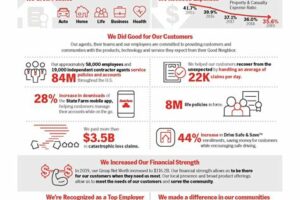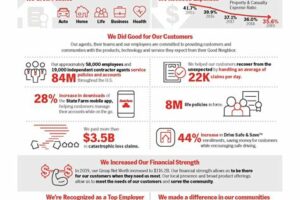Table of Contents
Discover the steps to becoming a farmer in Washington State. From finding land to securing funding, we’ve got you covered. Start your farming journey today!
Have you ever considered becoming a farmer in Washington State? If you have a love for the outdoors, enjoy working with your hands, and are willing to put in the hard work, then farming may be the perfect career path for you. While it may seem daunting to start your own farm, with the right resources and determination, it can be a fulfilling and lucrative venture. First and foremost, it’s important to do your research and understand the agricultural landscape of Washington State. From the fertile soil of the Yakima Valley to the diverse crops grown in Skagit County, there are endless opportunities for success in farming.
Washington State is known for its vast areas of fertile land and diverse agriculture. Many aspiring farmers dream of starting their own farms in this beautiful state. However, becoming a farmer in Washington is not an easy task. It requires hard work, dedication, and knowledge of the agricultural industry. In this article, we will discuss the steps on how to become a farmer in Washington State.
Step 1: Gain Experience
The first step to becoming a farmer in Washington State is to gain experience. You can start by working on a farm or volunteering at local agriculture events. This will give you a chance to learn about farming practices, crop management, livestock care, irrigation, and other essential skills needed for successful farming.
Step 2: Develop a Business Plan
Developing a business plan is crucial for any farmer who wants to succeed in the competitive agricultural industry. Your business plan should include your goals, marketing strategies, financial projections, and other important details about your farm. You can seek help from agricultural experts or organizations that offer business planning services.
Step 3: Choose a Farm Location
Choosing the right farm location is critical for your success as a farmer. You need to consider factors such as soil type, climate, access to water, transportation, and market proximity. Washington State has diverse regions with different agricultural potential. You can visit various regions to find the best location for your farm.
Step 4: Obtain Financing
Starting a farm requires significant financial investment. You can obtain financing from banks, government programs, or private investors. You need to prepare a solid business plan and financial projections to convince lenders that your farm is a viable investment.
Step 5: Acquire Land and Equipment
Once you have secured financing, you need to acquire land and equipment for your farm. You can purchase or lease farmland depending on your budget and long-term goals. You also need to invest in quality equipment such as tractors, irrigation systems, and harvesting tools.
Step 6: Register Your Business
Registering your farm as a business is essential for legal and tax purposes. You need to obtain the necessary licenses and permits from state and local authorities. You also need to comply with environmental and labor regulations.
Step 7: Build Networks
Networking is crucial for farmers who want to succeed in the industry. You can join farmer associations, attend agricultural events, and connect with other farmers to share knowledge and experiences. You can also build relationships with suppliers, buyers, and other stakeholders in the agricultural value chain.
Step 8: Market Your Products
Marketing your farm products is critical for attracting customers and generating revenue. You need to identify your target market and develop marketing strategies that suit your products. You can use various channels such as farmers’ markets, online platforms, and direct sales to reach your customers.
Step 9: Stay Informed
The agricultural industry is constantly changing, and farmers need to stay informed about new technologies, policies, and market trends. You can attend conferences, read industry publications, and participate in training programs to keep yourself updated.
Step 10: Be Patient and Persistent
Becoming a successful farmer takes time, effort, and perseverance. You need to be patient and persistent in pursuing your goals even when faced with challenges and setbacks. Remember that farming is a rewarding but challenging profession that requires passion and dedication.
In conclusion, becoming a farmer in Washington State requires hard work, dedication, and knowledge of the agricultural industry. By following these steps, you can start your own farm and contribute to the state’s vibrant agricultural sector.
Starting a farming business in Washington State can be a fulfilling and profitable venture. However, like any other business, it requires careful planning and execution. Here are ten essential steps to follow if you want to become a farmer in Washington State.Firstly, start small and expand gradually. It is essential to begin with a small plot of land and learn the necessary skills required as a farmer before expanding your venture. This approach helps you minimize risks and make informed decisions as you grow your farming business.Secondly, obtain relevant licenses and permits. Before starting any agricultural business in Washington State, it’s crucial to obtain all necessary documents, permits, and licenses. The state has specific regulations concerning farm operations, and you need to adhere to them. Failing to comply can result in significant legal and financial consequences.Thirdly, find and secure land. Securing land can be a daunting task, but it’s vital to find the right plot that fits your farming needs. You can lease or buy the land, depending on your preferences and budget. Consider factors such as soil quality, water availability, and proximity to markets when selecting a location.Fourthly, determine which crops to grow. Washington state’s climate favors the growth of various crops, making it rich in agriculture. You must determine which crops to grow to get started on the right foot as output differs with each crop. Consider factors such as market demand, soil compatibility, and profitability when selecting your crops.Fifthly, understand your target market. How do you plan to market your produce? Understanding your target audience is vital as it informs your production decisions. Research the local market, identify potential buyers, and tailor your products to meet their needs.Sixthly, obtain necessary equipment and facilities. You need to have the necessary equipment to start farming in Washington State. Based on the crops you grow, you may require specialized equipment, which can be expensive. Hence, consider leasing or buying used equipment before making a more significant investment.Seventhly, build a network of contacts within the industry. To flourish as a farmer in Washington State, it’s crucial to network with other farmers. Attending workshops, conferences, and other industry-related events will help you establish valuable contacts. These contacts can provide insights, support, and potential business opportunities.Eighthly, stay current with industry trends. To succeed in the Washington State farming industry, you need to stay current with the latest trends. Continuous learning should be a part of your strategy to become an efficient farmer. Keep up to date with advancements in farming technology, market trends, and new regulations that affect your business.Ninthly, create a business plan. A well-thought-out business plan outlines your farming vision, goals, and strategies. It’s crucial to have a plan in place as it provides a structure to your farming operations. Your business plan should include financial projections, marketing strategies, and risk management plans.Finally, be patient. Farming is not a light path to success. It requires patience, persistence, and hard work to achieve success in the industry. You must remain focused and committed, knowing that success is a culmination of consistent labor and discipline.In conclusion, becoming a farmer in Washington State requires dedication, hard work, and careful planning. By following these ten essential steps, you can start a successful farming business and make a significant contribution to the state’s agricultural industry. Remember to start small, obtain relevant licenses, find and secure land, determine which crops to grow, understand your target market, obtain necessary equipment and facilities, build a network of contacts within the industry, stay current with industry trends, create a business plan, and be patient.
Have you ever dreamed of becoming a farmer in Washington State? It may seem like an impossible feat, but with the right mindset and steps, it can become a reality. Here are some tips on how to become a farmer in Washington State:
- Start with research – Learn about the different types of farming in Washington State, such as dairy, fruit, vegetable, or livestock farming. Look for resources such as the Washington State Department of Agriculture or local farming organizations.
- Gain experience – Get hands-on experience by volunteering on a farm or working on one. You can also attend workshops or take classes on farming techniques and business management.
- Create a business plan – Develop a business plan that outlines your goals, target market, marketing strategies, and financial projections. This will help you secure funding and make informed decisions.
- Secure funding – Explore funding opportunities such as loans, grants, or crowdfunding. Consider joining a cooperative or partnering with other farmers to reduce costs.
- Find land – Look for available land that is suitable for your type of farming. Consider factors such as soil quality, water availability, and proximity to markets.
- Obtain necessary permits and licenses – Ensure that you have the required permits and licenses for your type of farming and business structure. This includes registering with the Washington State Department of Agriculture and obtaining a business license.
- Build relationships – Connect with other farmers, suppliers, and buyers in your area to build a network of support and resources. Attend local events and join farming associations to stay informed and engaged.
- Be adaptable – Farming is a constantly changing industry, so be open to new techniques and technologies. Stay informed about market trends and consumer demands, and adjust your business plan accordingly.
- Stay committed – Farming can be challenging, but it is also rewarding. Stay committed to your goals and continue learning and growing as a farmer.
Becoming a farmer in Washington State is an exciting journey that requires hard work, dedication, and perseverance. By following these steps and staying passionate about your dream, you can make it a reality.
Hello there, dear blog visitors! I hope you found this article about becoming a farmer in Washington State informative and helpful. Whether you’re just starting out or looking to make a career change, the process of becoming a farmer can be both challenging and rewarding. But fear not, as I’ve outlined some steps and tips to guide you on your journey. Let’s recap some of the key points and take a moment to reflect on what it takes to become a farmer.
Firstly, it’s important to understand that farming is not just a job, but a way of life. It requires dedication, hard work, and a passion for the land and its resources. Before embarking on this journey, take some time to assess your skills and interests. Do you have experience in agriculture or related fields? Are you comfortable with manual labor and working outside in various weather conditions? Do you have a strong sense of community and a willingness to collaborate with others? These are all important factors to consider when choosing to become a farmer.
Once you have a solid foundation of knowledge and skills, it’s time to start exploring the resources and opportunities available in Washington State. This includes researching the local farming community, attending workshops and events, and networking with other farmers and industry professionals. You may also want to consider obtaining certifications or training programs to enhance your skills and qualifications. Remember, farming is a constantly evolving field, so staying up-to-date on the latest techniques and trends is essential for success.
In conclusion, becoming a farmer in Washington State is a challenging and rewarding journey that requires dedication, hard work, and a passion for the land. By taking the time to assess your skills, explore your options, and stay informed about the latest trends and techniques, you can set yourself up for success in this exciting field. So, what are you waiting for? Roll up your sleeves, put on your boots, and get ready to embrace the farming life!
.
People often wonder how to become a farmer in Washington State. Here are some common questions and their answers:
-
What qualifications do I need to become a farmer in Washington State?
There are no specific qualifications required to become a farmer in Washington State. However, a background in agriculture or related fields can be helpful. It’s also important to have a strong work ethic, good organizational skills, and the ability to adapt to changing conditions.
-
Do I need to own land to become a farmer in Washington State?
No, you don’t necessarily need to own land to become a farmer in Washington State. You can lease or rent land from other farmers or landowners. There are also programs and organizations that can help connect you with landowners who are looking for farmers.
-
How do I get started as a farmer in Washington State?
The best way to get started as a farmer in Washington State is to gain experience working on a farm. You can start by volunteering or interning on a local farm, or by taking farming courses at a community college or university. It’s also important to network with other farmers and agricultural organizations in your area.
-
What types of crops can I grow in Washington State?
Washington State is known for its diverse agricultural industry, with crops ranging from apples and cherries to wheat and hops. The state also has a growing organic farming sector, with many farmers focusing on sustainable and regenerative agriculture practices.
-
Are there any resources available for aspiring farmers in Washington State?
Yes, there are many resources available for aspiring farmers in Washington State. The Washington State Department of Agriculture offers a variety of programs and services for farmers, including loan and grant programs, technical assistance, and marketing support. There are also numerous farming organizations and associations in the state that provide support and resources for farmers.
Becoming a farmer in Washington State requires hard work, dedication, and a passion for agriculture. By gaining experience, networking with other farmers, and utilizing available resources, you can start your own successful farming operation in this beautiful and fertile state.






